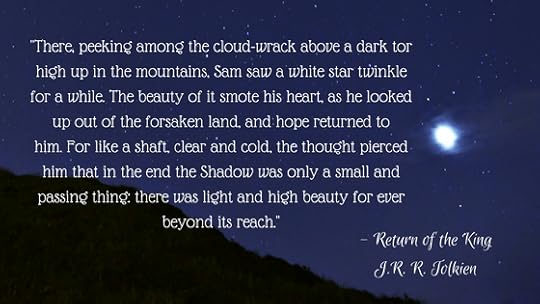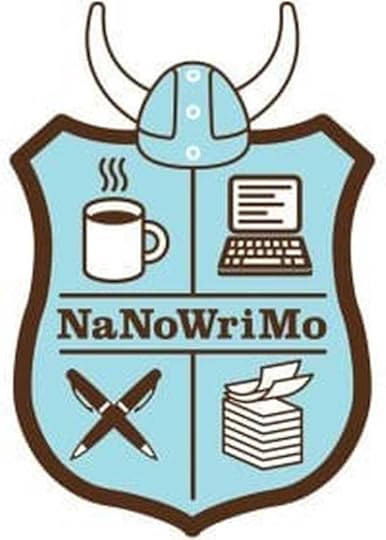Pamela Q. Fernandes's Blog, page 28
December 8, 2017
Guest Post: Fantasy Author Stephanie A. Cain
Drum Roll Please. Fantasy author Stephanie Cain is here. I promised a special someone for our blog tour and here she is.

Fantasy Author Stephanie Cain
Stephanie A. Cain writes epic & urban fantasy novels. She grew up in Indiana, where much of her urban fantasy is set, but dreams of living somewhere without winter. She works at a museum where the best-selling novel of the 19th century was written. A proud crazy cat lady, she is happily owned by Strider, Eowyn, and Eustace Clarence Scrubb. Her website is www.stephaniecainonline.com and she can also be found on Twitter as @stephanie_cain and Facebook at https://www.facebook.com/stephaniecainfiction/.
Stephanie and I have swapped posts. So she’s going to talk about “Shining A Light” this Christmas season. Remember we’re doing this as part of our Giftmas 2017 Tour to help the Edmonton Food Bank. Help us with just a dollar and you can still win a prize, see here.
Over to Stephanie!
Belief and Fantasy
I’m a fantasy author. My dad read to me almost every night, taking me through the Chronicles of Narnia, the Westmark trilogy, the Prydain Chronicles, The Hobbit and Lord of the Rings, and many other wonderful books. Because he gave me this love of reading, and reading fantasy in particular, I grew up with an identity grounded in that literary tradition.
I was also raised a Christian—in the evangelical church, specifically. Over the years I have rejected the political identity that goes with the evangelical church, but I have never stopped being a fan of Jesus Christ. These days I tend to refer to myself as a red-letter Christian (someone who believes Christianity should be defined by the words of Jesus, which many Bibles print in red ink) or a follower of the Jesus Way (a term used by the Boston Declaration signers here: https://thebostondeclaration.com/ ).
My two heroes of fantasy were J.R.R. Tolkien and C.S. Lewis. Tolkien was a Catholic, as many people know, and dear friends with Lewis, who became one of the foremost theologians of the 20th century and—more importantly to many people—the creator of Narnia.
For me, it was never a secret that the great lion Aslan was Jesus…but I always felt as if I loved Aslan more than Jesus. In that, I was like Laurence, whose mother wrote a letter to Lewis in 1955. Lewis replied, “When Laurence thinks he is loving Aslan, he is really loving Jesus: and perhaps loving Him more than he ever did before.” (Letters to Children, p 52)
Fantasy and Hope
Almost two years ago I wrote a blog post about hope in fantasy literature (http://www.stephaniecainonline.com/hope-in-fantasy/), and I highlighted what I feel is one of the most beautiful passages every written—it’s a passage I return to when I’m in need of encouragement, and, perhaps unsurprisingly, it’s about light.
In J.R.R. Tolkien’s Return of the King, Book 6, Chapter 2, “The Land of the Shadow,” Samwise and Frodo are deep in enemy territory, hungry, thirsty, and exhausted, and Frodo is growing weaker under the burden of the ring. And yet…
“Far above the Ephel Duath in the West the night-sky was still dim and pale. There, peeking among the cloud-wrack above a dark tor high up in the mountains, Sam saw a white star twinkle for a while. The beauty of it smote his heart, as he looked up out of the forsaken land, and hope returned to him. For like a shaft, clear and cold, the thought pierced him that in the end the Shadow was only a small and passing thing: there was light and high beauty for ever beyond its reach.”
Isn’t that wonderful? The world is dark and grim, we are battered and sore and weary, and it seems like we’re creeping—or even racing—closer to a moment when everything is going to fall apart. But there’s still light and high beauty that the darkness can never touch.

Belief & Fantasy
Hope and Real Life
That passage reminds me of one in the Bible—1 John 2:8. “…the darkness is passing away and the true light is already shining.” Just a couple sentences later, John adds, “Whoever loves his brother abides in the light, and in him there is no cause for stumbling.” There’s another important passage in the Bible that talks about loving someone else. In Matthew 22:39, Jesus says, “You shall love your neighbor as yourself.”
Taken together, that means if I want to live in the light, I need to love my brother, my neighbor, as I love myself.
What does it mean to love my neighbor as myself? In my mind, it means I want for my neighbor all the things I want for myself—health, happiness, fulfillment, to not be hungry, to not be in need, to have people who care about me. It means I want my neighbor to have the same light I do. It means I want all of my neighbor’s needs to be filled.
So for me the goal, not just of Christmas or Giftmas but of the entire year, is to shine a light on the people I come into contact with, whether I do that by giving money to a food bank, donating to the ACLU, sponsoring a refugee family—or even by writing fantasy novels that are filled with moments of hope when my characters are striving to do what is best for their world.
And isn’t that really what both the Bible and Frodo’s quest to destroy Sauron are about? Doing what’s best for the world and shining a light—even when it’s hard.
-Stephanie A. Cain

Giftmas 2017
So that was Stephanie for you, as part of our Giftmas Tour. We’ve already raised 300$ so we have a very short distance to go. If you can, help us spread the word on social media #Giftmas2017 is our hashtag!
The post Guest Post: Fantasy Author Stephanie A. Cain appeared first on PAMELA Q. FERNANDES.
December 6, 2017
Giftmas 2017 Tour Edmonton Food Bank
Giftmas! Yes, I’m back this year with a Christmas Tour with lots of goodies! Last year I participated in the 2016 Giftmas Tour arranged by renowned Canadian editor Rhonda Parrish. WE raised 500$ back then for those affected by the fires in Canada and it made me feel so happy. Last year there were few gifts, some crochet work done by Rhonda herself, yet we had so many donors.
This year Rhonda and all the participating authors have banded together to give away signed and unsigned copies of free books and other wonderful gifts for the winning donors. There are lots of gifts to be won this year and we hope the Edmonton Food Bank can provide many more meals this Christmas with the proceeds from our Giftmas Tour.

Giftmas 2017
So what are the prizes?
Tuckerization in Circle City Magic (Stephanie A. Cain)
Stickers (Stephanie A. Cain)
Paperback copies of the first four books in Amethir series (Stephanie A. Cain)
Signed copy of Chicken Soup for the Soul books (x2) (Beth Cato)
Two signed paperback copies of Vacui Magia (L.S. Johnson)
Signed paperback copy of Three Way Dance (Brian Rosenberger)
Sensitivity Read or poetry critique (Lisa Bradley)
Themed packet of jounaling/scrapbooking ephemera (Lisa Bradley)
Paperback copy of The Stars in My Eyes (Doug Blakesly)
Signed copy of Monsters in my Mind (Ada Hoffmann)
Paperback copy of Heavy Metal (Andrew Bourelle)
Ebook copy of Faegotten (x 10) (Jude Tulli)
Small piece of art (Lynn Hardaker)
Mini hand-bound leather journal (Lynn Hardaker)
Ebook copy of the Witches of Doyle three book set (Kirsten Weiss)
Paperback copy of The Songweaver’s Vow (Laura VAB)
Ebook copy of Bait (Laura VAB)
Tuckerization — conditions apply (Laura VAB)
Custom cross stitch 6″ square or smaller (Jennifer Lee Rossman)
Phew! Those are a lot of Giftmas goodies! Have I interested you in our Christmas Tour yet? Hop over to our Fundraiser Page and check out who the money will go to. Remember all proceeds go directly to the Edmonton Food Bank. While Rhonda has set a goal of 522$ we’d really like to surpass ourselves this year and do more!
Take a look at why all of us have come together for this project this year in this post!
We all also explain “What we celebrate” in a blog post during the holiday season, since many of the participating authors come from diverse backgrounds and celebrate the season in different ways.
So check it out. I will be sharing links to all the author posts during this tour tomorrow and then welcoming a special someone here on friday, so watch out!
If you would like to participate here’s our rafflecopter link.
Have a Wonderful Advent Season All!
Cheers!
Pam
The post Giftmas 2017 Tour Edmonton Food Bank appeared first on PAMELA Q. FERNANDES.
December 4, 2017
How I completed 3 manuscripts with Nanowrimo!
Nanowrimo 2017 has just ended. And for the first time in four years managed to hit the 50K mark. For those unaware, Nanowrimo is National Novel Writing Month.

Nanowrimo 2017
Usually I have a plan when it comes to Nanowrimo. I’ve either outlined a plot or I have an idea and try to build the story. That’s what I did all these years and managed to hit 48-49 K. Not bad, but this year by October 30 and even the first two days of November I had no idea what I was going to do. I was clueless and I didn’t know what I was going to write.
Without a plan it’s really hard to do Nanowrimo. Success largely depends on planning when it comes to Nanowrimo. So I looked at all my writing projects, especially the ones, where I had been asked to do R & R’s and ones that needed to be finished. I targeted four manuscripts. Each had or needed 20-40K words to be completed.
Step 1: Manuscript Choice
I chose 3 manuscripts that needed 20K-40K words. I was interested in writing these. I can’t explain it, but the others I just wasn’t in the mood to write.
Step 2: Identified Word Count/Day
One manuscript required 40K words. So that meant I needed to put down at least 4000 words per day. Those were tiring days. I was drained body and mind. The others required 1500-2000 words per day.
Step 3: Identified Weeks and Manuscripts
I set a deadline. Week 1 -X, Week 2- Y, Week 3-Z. I alternated the weeks so in week 1 I started with work that required 2000 words a day. This was a good decision, because it takes time to get your bearings. Earlier I was doing somewhere between 1000-1500 words a day and this was a lot more time and words. Then by week 2 I went on to 4000 words per day, by week 3 I was exhausted and dropped down to 2000 words a day, so the smaller manuscript.
Step 4: Kept Working
It was hard. I almost lost the entire first week, trying to get a plan ready and then getting into writing mode. So the thing I had to do was commit to sitting my butt in chair till those words were out. So I’d see yesterday I wrote 23,006 then I’d add the supposed new total on Nanowrimo and my page at 27,006 and would not get up till my word document read that number. This kinda forced me to do it in a way.
Step 4: Set the time
I experimented quite a bit in the first week, morning, early morning, night, evening. I found that after my prayer time, I was usually quite refreshed. My mind had emptied and after spending some time in contemplation, I was more calm. Also most of the word day, had been finished so I didn’t need to worry about any disturbances by evening. So 5-8 was usually my writing time. I’d sit with water and cookies by my side and wrote till I was done. I’d go to the restroom before so I didn’t have any excuse to get up.
Step 5: Turn off Everything
In my case I found it helpful to stay off social media and TV until my work was done. So I usually watch reruns of Everybody loves Raymond at 8:15. I found myself writing harder to make it to that slot. I wouldn’t check on social media till I was finished. It helped me because until I’d met the count I didn’t allow myself the freedom to entertain myself. Those distractions also helped me to wean myself from checking Twitter incessantly.
Step 6: Reading time
I’d read before falling asleep, on Sundays, my own manuscript before starting it on Monday to know where I was in the story or on weekdays other stories similar to mine to keep me grounded in the genre I was writing.
And that’s how I won Nanowrimo 2017 with three manuscripts this year. Mind you this worked for me , because I knew the beginning, middle and end of my story. One of my manuscripts needed description and color and world building as suggested by my publisher. Another needed to have an end which I knew, just getting there was the thing. This Nanowrimo helped me to finish the manuscripts that had been sitting on the shelf a long time.
What I’ve learned from this experience is you can take Nanowrimo and set your own goals or targets and use it in a way that supplements your career or whatever stage of the writing game you’re at. Next year I may look at getting two manuscripts ready three months prior and only look at focused and fast editing. The sky is the limit. Nanowrimo is simply a tool, it’s up to you, how you want to use it!
How did you use NaNoWriMo?
The post How I completed 3 manuscripts with Nanowrimo! appeared first on PAMELA Q. FERNANDES.
November 30, 2017
Q 19 Handling Competition
Competition: How to eliminate them?

Handling Competition
This week I’m back with a new question. I’ve been busy with our new Giftmas tour, my guest posts and choosing a stethoscope. I’ve been thinking of choosing the Classic Littmann or the MDF instrument in rose gold. I’ve finally managed to sift through my emails, almost forty of them for a question to post here. And this one was interesting from Dr. ST who says, “I practice in a semi-urban city. I’ve been here five years with a successful practice. A new doctor has come in and set up a practice two doors down from me. Since then over the last month business has dwindled and my patients have moved to him. How do I handle the competition?”
Okay so here’s the thing, the very fact that you’re asking after another practice has moved in means you’re late to the party. Here’s why:
Anticipating Competition
One of the things about running any practice/business is anticipating competition. I don’t know why we aren’t taught these things in medical school, but you need to have some idea about how to run a business. The first thing is plan your practice in such a way knowing that someday you will have competition. You are not going to be the only doctor in an area. So plan to set yourself apart, and be unique for your patients. What is that one thing that only your practice offers that no one else does, home visits, home blood draws, delivery of medications? Read business books like the personal MBA or take a course. And start learning about the healthcare business and preparing for this. (Even you Dr ST)
Provide Offers
Don’t take the patients for granted. They will always move when they find something of value elsewhere. So ask your BDM or sales team (if you have these) to come up with ways to keep things fresh or get people to stay. For example, free or discounted flu shots in the winter, free blood pressure camps in the community, participate in the local fair, provide discounted diet sessions. Constantly have something new to offer so it keeps a buzz in the practice.
Other Doctors are Not your Competitors
Let’s be honest, there’s a huge market, when you say semi-urban, I’m thinking of a lot of people when you say this. See if you can talk to the other doctor about joining hands. If he’s a different specialty or sub-specialty, you may want to jointly create a program instead of poaching new clients off each other. It’s a sad day if you think there’s a shortage of patients. There’s plenty provided you know to read the market.
Advertise
Medical facilities don’t advertise their brands. And I think that’s a shame and I don’t even mean, blatant advertisement, you don’t need things like that. Try subtle advertisements, like your church bulletin, your google rankings, your doximity or online reviews, having a website, optimizing it for local business. You have to think of getting new patients, if that is what you want.
The definition of “success” if different for different people. For me seeing 10 patients a day is awesome. For others, they’d like to see forty, for some they want to see particular figures and for others it’s about the results or hospital co-referrals. I’m only trying to say that look at competition as a fairer way to better the market. With the competition, you’ll be forced to improve rather than stagnate and remain the same. That’s how I think you should handle it.
The post Q 19 Handling Competition appeared first on PAMELA Q. FERNANDES.
November 27, 2017
Goodreads Giveaway Gift

Christmas Giveaway Gift
It’s the season of giveaways & gifts! And I’m happy to announce a Christmas gift in the form of a new giveaway for Cinders of Castlerea on Goodreads. It starts on Dec 1, 2017 and will go on till the end of the month. You heard that right! An entire month so you can sign up anytime for this romantic suspense set in Ireland.
If you want to enter the giveaway just click on the “Enter Giveaway” button below:
.goodreadsGiveawayWidget { color: #555; font-family: georgia, serif; font-weight: normal; text-align: left; font-size: 14px;
font-style: normal; background: white; }
.goodreadsGiveawayWidget p { margin: 0 0 .5em !important; padding: 0; }
.goodreadsGiveawayWidgetEnterLink {
display: inline-block;
color: #181818;
background-color: #F6F6EE;
border: 1px solid #9D8A78;
border-radius: 3px;
font-family: "Helvetica Neue", Helvetica, Arial, sans-serif;
font-weight: bold;
text-decoration: none;
outline: none;
font-size: 13px;
padding: 8px 12px;
}
.goodreadsGiveawayWidgetEnterLink:hover {
color: #181818;
background-color: #F7F2ED;
border: 1px solid #AFAFAF;
text-decoration: none;
}
Goodreads Book Giveaway

Cinders of Castlerea
by Pamela Q. Fernandes
Giveaway ends January 01, 2018.
See the giveaway details
at Goodreads.
Did I Say Gift?
Yes I did. Lot’s of goodies are coming your way this month as we celebrate Christmas. There’s going to be a blog tour for Christmas just like I did last year and many of my authors are giving away copies of their recent books as a gift to raise money for the less fortunate. Last year we raised 600$ for the Edmonton food bank in Canada. I was so humbled that we raised so much money despite the few hand-knit scarves that were part of the gifts.
So it’s giveaway galore this Christmas season. Stay tuned for more information because who know you may win an unexpected Christmas gift this season.
Also if you have the time check out my article on life.com titled 5 Ways Single Women Can Enjoy The Holidays. I’d love to hear what you thought about the post. There’s plenty happening around here , you may want to check out our new podcast released for this month of November, 2017 on “Why Spiritually Prepare for Christmas through Advent?”
So sign up for my Goodreads Giveaway. If you know people partial to sweet, Irish romances then share the giveaway with them. And watch out for the opening of our Giftmas 2017 blog tour this week!
Cheers,
Pam
The post Goodreads Giveaway Gift appeared first on PAMELA Q. FERNANDES.
November 22, 2017
Why Spiritually Prepare for Christmas through Advent?
The number one thing that I would do is spend more time in prayer and just ask the Lord to show you why Advent is so special, what the incarnation means, why should I be participating in the season? Gretchen Filz

Advent & Spiritual Preparation for Christmas

Gretchen Filz
Gretchen is a Lay Dominican with a passion for fostering an increase in Catholic faith and devotion through content writing and journalism. She works as a digital content writer, creator, and marketer for The Catholic Company. In addition to blogging at GetFed.com, she is also editor of the MorningOffering.com daily devotional email and author at GoodCatholic.com. She holds an M.A. in Christian Apologetics and converted to the Catholic Church in 2011. She is also active in R.C.I.A., pro-life work, and various faith-based web projects.
In this episode, I talk to Gretchen about Advent and the spiritual preparation before Christmas. She talks about:
-Ways to celebrate Advent
-Choosing spiritual gifts for our loved ones
-Celebrating the Christmas season and not just the day
-Starting a liturgical revolution
For our listeners who’d prefer to read, here’s the transcript:
Gretchen: My name is Gretchen Filz and I work for catholiccompany.com and I am a convert and my job there is to blog and just write and teach about the Catholic faith through various platforms that we have. So, we have getfed.com which is our blog. We have morningoffering.com which is a Catholic daily devotional. So, I’m the editor and curator for that daily devotional. Also, we have a new sort of series that we launched, our new platform that we launched. So, I write these content series that we have. The first one I did was a 30 day series on Our Lady of Fatima and right now, I’m in a 21 day content series on Mary. So, we have a lot more coming out in the next year, about six or seven new series. So, that’s what I do for The Catholic Company. So, it is…The Catholic Company, although we are an online store, we’re very much also part ministry. So, we care very much about not only selling devotional religious products to our customers but also informing them in their Catholic faith and teaching them why we use these things, how to go deeper in their faith and that my role there as a company is to help facilitate that process.
Pamela: So, in a way, your job is kind of like a ministry, right?
Gretchen: Yeah. It’s definitely, I consider it to be a personal apostolic, if you will, because it takes…it’s not easy to write. It’s not something that you can just go to work and do and leave work. Like, I have to also…in order to even be able to write about these things, I also have to practice and have a deep devotional life something that I don’t have. So, I can’t write about these things, I can’t explain how all of these things work if I don’t have them in my own life. So, certainly outside of work, I definitely have to make sure that I’m keeping up with my spiritual discipline and practicing my faith in the best way that I know so that I can benefit others who read my work.
Pamela: I read some of your work. I mean, you had a couple of posts on Advent and Christmas on your website and a couple of other websites and I was quite impressed with what I read there. And given that we’re going into the Thanksgiving, Christmas season, you know, I think we’ve lost this meaning of Christmas and preparation in a spiritual sense. So, can you explain why this is just not simply a holiday or just any other season, why is this so special, why is this so important?
Gretchen: Well, I think it’s important to keep in mind that Christmas is a liturgical season and it boasts…there’s two principle times of year for Catholics that are the highest Holy days of the year, Christmas and Easter. And so, that’s why Christmas is such a big deal out in the culture because hey, it’s presents, it’s Christmas trees and reindeer and snowmen and the fact that it’s such a big deal in the culture, I think, signifies that it should be a big deal in our spiritual life. In fact, I don’t think that we approach it appropriately considering what it is. So, the secular world kind of really disconnects it from Jesus’s birthday, but, for example, non-Catholic Christians, they do understand that it’s Jesus’s birthday but they don’t really understand the richness and the depth and the meaning and the beauty behind it. And I got to experience that as a Catholic, so that’s one of the posts that I have written, “Celebrating Christmas Like Catholics” where I just describe that transition of celebrating Christmas as a Protestant to celebrating it as a Catholic and just how much it exploded for me, its richness, its beauty and understanding what it truly is. Because I don’t think that I ever really understood what Christmas really was in Catholic until I learned of the incarnation, it’s a celebration of the incarnation of Jesus Christ. The words means flesh come down for us and what that means. I never learned about the incarnation as a non-Catholic. I mean, I suppose I understood it in some sense, but I didn’t really understand what a big deal that is. God comes and takes his flesh with us. And the importance of the Advent season that precedes Christmas, how it’s four weeks long, so we begin to enter into a time of anticipation for the arrival of Christ. That fall of Adam and Eve, the tradition is that it was about 4,000 years from the time of the world’s creation to the incarnation of Jesus Christ. So, we waited quite a long time for the birth of Jesus and the world was in sin and darkness. There was a lot of hope. We had the hope promised in Genesis when God prophesied that the world’s savior would come in the form of Angelian. I mean, there was a lot of prophecies in the Old Testament, but the arrival of the Messiah hadn’t come. So, the fact that the world waited for 4,000 years, darkness and sin, and then a hopeful longing that one day a savior would come and save us from our sins. That’s incredible. People don’t really understand that on this side of the incarnation because Christ has already come. We look back at it. But if we think about the other side of the incarnation is that the people of God waited for a long time. So, the four weeks of Advent is a way of tapping into that anticipation and that whole expectation and waiting of the birth and Messiah and they did. So, each of the four weeks of Advent can symbolize 1,000 years, so every week you go through in the Advent season, it’s like 1,000 years of waiting to the point where we get to the 4,000 years. So, yeah, it’s just, it’s a beautiful season, a beautiful time that we can enter into and I only think that we can truly celebrate Christmas if we are fully entering into the Advent season and gathering up all the richness there for us to ponder so that we can kind of get what a big deal the incarnation was.
Pamela: You mentioned that Advent is a week long. Also, why is it important that we should prepare? I mean, why is it important that people should spiritually prepare? A lot of people might say, “Well, okay, 4,000 years back and now we’re looking to the future.” But how has this helped you spiritually and how can we convince other people that this will spiritually help them, that Advent will make a difference?
Gretchen: Well, I think it’s important because we need to remember there’s actually two comings of Christ. So, Christ came in the flesh at Bethlehem. So, it’s been now 2,000 years since Jesus came to us in Bethlehem and he doesn’t appear on earth, but he promised that he will return at the end of time. So, Christians…the hope of the people of God in the Old Testament times was waiting for the birth of the Messiah to save us from our sins. And for the Christians today, it’s waiting for the second coming of Jesus and the hope of the Resurrection. So, people in the Old Testament, they endured in sorrow because of the world of sin that they lived in waiting for the coming of Christ and I think in the same way we do as well. That the people in the Old Testament kind of taught us how we wait and we anticipate the coming of Christ, because just as they waited, so we wait, too, on the second coming. We endure a lot, you know, 2,000 years since the Christ came but we also have that hopeful longing for the second coming. So, whenever we enter into the Advent season, it is a reminder, the Advent, that Jesus is going to come back and how should we behave? In prayer and sacrifice and, Alms giving, as we await Christ because we know that we will need to be ready. So, I think the importance of celebrating Advent is to remember that just as Christ came in Bethlehem, he’s coming back again and this is what Advent does for us. It brings us back to the center of our faith, which is Jesus Christ and ensure that we prepare our hearts. So, in the Old Testament, they prepared for his coming in Bethlehem and we prepare his coming in the clouds, the sign the sound of the trumpet when at the time of the Resurrection at the end of time.
Pamela: You wrote about 12 tips to make Advent more meaningful and can you share some of these important ones so that people can infuse this into their own Christmas prayer, into their own Advent?
Gretchen: Well, I think most families or most Catholic families that probably participate in the Advent based tradition, so I think it would be a neat thing if families, what I wrote about in my 12 tips, I think it would be a neat thing if families took that up a notch. So, for example, when the families light a candle each Sunday of Advent, why not make a big celebration out of it? Why not invite friends or family over for each of the Sundays of Advent and create a traditional meal according to their culture or according to the season? And light the candle together as a group, not just as a family, but inviting other people to enjoy that with you. And I think that’s a wonderful way of evangelizing the day for those people who may not have that tradition or who otherwise may not really celebrate the Advent season as you can help them enter into that time of preparation.
So, I think a beautiful way to do that is just to have like a mini prayer service, if you will. Have everyone come over. Have a nice dinner, even a campfire, something like that and maybe towards the end of the night, maybe light a candle in the Advent Wreath. You say a little prayer and then everybody goes home. And then do that to the four weeks of Advent. And I think this is a really neat way to practice hospitality and to visualize our faith and to do works of mercy for those who may not have a deep relationship with God and hopefully, that would foster that relationship. So, I think that’s a beautiful way that we can celebrate the Advent season.
I also wrote some other tips about devotional readings. So, that’s pretty standard. I think most people tend to do that kind of devotional reading, but I do think it’s essential and it’s something that we should never forget. One of the things, I don’t know if I included that in my 12 tips, but I really love the St. Andrew Christmas Novena and that is a tradition where you pray what’s called the St. Andrew’s Novena Christmas prayer because St. Andrew’s Feast Day actually determines when the first day of Advent starts and because he was the first Apostle called by our Lord and he’s the one that actually introduced Simon to Peter to Christ, so that’s why Advent is, the date when Advent starts is when we celebrate his feast day because he is the first Holy Apostle. So, it’s a beautiful tradition, but the St. Andrew Novena prayer is prayed every day from St. Andrew’s Feast on November 30th to Christmas Eve and it’s, “Hail and blessed be the hour and moment in which the Son of God was born of the most pure Virgin Mary, at midnight, in Bethlehem, in the piercing cold. In that hour, vouchsafe, O my God! to hear my prayer and grant my desires, through the merits of Our Savior Jesus Christ, and of his Blessed Mother. Amen.” So, I fell in love with that prayer and you recite it 50 times a day for special intention from November 30th to Christmas Eve and I think that is an incred-…if you do nothing else for Advent, I recite that prayer. I think it would…it goes a long way. You recite it 15 times because it becomes a beautiful meditation as you think about each of the words and it just impresses on our minds, the importance of the incarnation and how the incarnation, Christ is coming to us dwelling in our soul.
Pamela: Not lighting up Christmas decorations immediately after Thanksgiving, you suggested doing it through Advent slowly. That was I think one of your…
Gretchen: I think it would, it kind of goes into the liturgical season and rather, maybe you put up a few lights every day of Advent and then your house progressively becomes more light and more decorated as you progress throughout Advent and that is also one of the beautiful things that you can do for St. Lucy’s Feast Day in December. Lucy’s name means light and her Feast Day falls in the Advent season. So, that could also be a day that would be appropriate for, you know, turning on your Christmas lights for the Feast of St. Lucy because that falls during Advent season. But in any case, I just think it’s nice to recall you shouldn’t start the celebration as if Christmas is already here by having everything put out. should be something that is progressive in a sense that a little bit at a time could be a better way to do it. And I’m not knocking those who put out everything all at once. But I’m just trying to think if we can move with the rhythm of the liturgical season and correspond our actions accordingly and in that way when we have all of the light fully on, even on that last Sunday of Advent, we’re more inclined to want to keep them up for the whole 12 days of Christmas.
Pamela: What about the Alms giving, penance and all of those things?
Gretchen: Yeah. so one of the ways that the Saints have taught that makes our prayer more powerful is when we accompany our prayer with prayer and fasting and Alms giving and this is done, of course, in a major way during the season of Lent, the passion of Christ celebration. The Advent has also, as I mentioned before, is known as the Little Lent, so it’s a way of doing little things, little sacrifices. And there’s also a beautiful Advent tradition, especially for children, so the principle behind this is you have an empty Christmas creche or an empty Christmas crib and children are taught to make little acts of sacrifice every day of Advent and for every act of sacrifice, you add a piece of straw to the cradle and then on the Feast, the baby Jesus figurine is placed in the creche and baby Jesus is made warm and comfortable by hay that’s in the cradle which symbolizes all of the child’s acts. So, what this means to children and us is that we make room in our hearts by making these daily acts of sacrifice, daily penances, by which all the things that we’re attached to in our soul we need to break up our attachments by giving to other people and making sacrifices and helping others. It detaches us from those things that keep us away from God. So, as we’re making the sacrifices throughout Advent, we’re becoming more and more free, we’re creating more and more room in our heart and therefore, when Christmas comes, we can really enjoy the fullness of Christ’s presence because we’ve also made room for him to give him more space in our souls for him to dwell because it’s Christ’s presence through sacramental grace. It’s not merely made operative. So, that’s the principle behind it.
Pamela: You have very specific advice about giving gifts, especially Christmas gifts. So, can you tell people about that? I think that now a lot of people will go crazy shopping and buying a lot of stuff. What is your advice about getting Christmas gifts for people?
Gretchen: Okay. So, we live in a completely materialistic culture and consumerist culture. And that is, although that’s unfortunate, we can make people more mindful of the presence of God and their relationship with God and get them to start thinking about that by giving them some sort of gift of faith, whether that is a devotional book or a Saint medal or a prayer card, a Rosary, anything like that that is something that they can benefit from spiritually. So, other than a new DVD or a new smart phone, all these electronic devices, cameras, you know, all of these things that we constantly give as gifts, we can remind them of God and to think of God if we give something that is devotional in nature and that brings their heart to God or their mind to God. And I think that is especially important in our day and age because we’re almost in a crisis of our culture.
I mentioned we have this consumerism and materialism but there’s also a lot of suffering because of this is prevalent in society and because God is locked out in so many ways that people have a hard time connecting with God and they don’t really know how to do that and a lot of people are suffering severely from anxiety and depression, especially among young people, suicide is at an all-time high and people out there are really suffering. So, I don’t think that we can underestimate, I mean, even among our friends and family, you know, people don’t openly talk about these things a lot of times. A good thing to do is maybe just pray to your guardian angel and when you’re thinking about a gift to give to somebody, we can maybe ask our guardian angel to ask their guardian angel, you know, “What can I give them that would be the perfect thing to help their relationship with God at this point where they are in their life?”
And the Holy Spirit will lead you to pick just the right book, you know, to get the right book for a person is not easy because there’s so many and people are at different levels and different places in their spiritual walk and it’s not easy to pick just the right thing, but you can ask your guardian angel to do that work for you and you can know that it would be something that God would be very pleased with, you know, do you think God wants everyone to be saved? He wants to draw all souls closer to himself and if you’re asking to participate in that and cooperate in that in getting just the right gift for another person that would need that in their lives, do you think that would be something that God would allow an angel to be able to communicate that? So, pray about it and give something whether it’s a Patron Saint medal or, you know, a Rosary, a book, just something that reminds them about their relationship with God, I think, is really important at Christmas time because of the celebration of the birth of Christ and he is the one who is the center, center of our being, the center of our world and center of our life and you should get at least one gift for everybody that you do get gifts for that symbolizes that.
Pamela: I think that’s fantastic, I mean, to be able to pray and then decide on a gift and then give a spiritual gift. I think that’s great advice.
Gretchen: Yeah. We have these spiritual tools at our disposal. We should use them.
Pamela: So, you also talk about celebrating all 12 days of Christmas. I know a lot of people just take down the stuff before the Feast and by New Year, they’re done with Christmas. So, tell people about these 12 days of Christmas and how they can celebrate more of the Christmas season instead of just Christmas Day.
Gretchen: Well, the 12 days of Christmas are…Christmas traditionally ends on Epiphany. I wrote a blog post on that “Does Christmas end on Epiphany.” There’s so many different traditions as to when the actual end of Christmas, because you take Christianity is 2,000 years old in its practice and different cultures and different eras and ethics and so there was some, you know, discrepancy like, for example, for a long time in the East, it was Epiphany that was a celebration of the birth of Jesus, not Christmas. Christmas and Epiphany were like one thing and in the Latin church those two days are separated. Anyhow on the 12 days of Christmas span from Christmas day, the birth of Christ up into the Feast of the Epiphany when the Magi came and presented their gifts before the baby Jesus. And so, that’s where the whole concept of giving gifts at Christmas, a celebration of the birth of Jesus comes from. That’s what the Magi did. So, this is where the tradition comes from.
So, the 12 days of Christmas are traditionally when we celebrate the feast of Christmas. Typically, in the Old Testament, they’re celebrating the feast in an octave that comes from the Old Testament celebrations of the great festivals of the Jews and it carries over into Christianity. Major feast days are celebrated for eight days. So, for example, eight days after Easter, we have Divine Mercy Sunday. The higher Holy Days have an octave that we celebrate. But in the case of Christmas, it goes 12 days to the Feast of Epiphany and so the best thing to do is celebrate all the and in many cultures, it has been even in the Catholic Church for many years, this is lost in our time. Epiphany was a very major feast day at the Catholic Church. So, after Christmas feast, Epiphany was right up there, after Easter and Pentecost. So, you have Easter and Pentecost and then you have Epiphany as major days. And so, Epiphany is also a major gift giving day in many cultures, even more so than Christmas. And so, I think it’s important to the number of Catholics that Christmas doesn’t end on December 26th, we see the Christmas celebration as going to Epiphany. And I think it’s okay to do that. So many people have a lot of holiday time planned and time off between Christmas and New Year’s. Why not save your Christmas parties to the week after Christmas? I think that’s the perfect time.
In the month of December, in the days of December before Christmas, you know, you’re busy with your cooking, your shopping, your, you know, all the things that you’re doing to prepare for Christmas and then you’re bombarded with Christmas parties. Your office Christmas party, your friend’s Christmas party, your church Christmas party, there’s so much of that going on but Advent is supposed to be a time of prayer and penance. So, I mean, these parties all during Advent and it just doesn’t seem right. So, save all of your parties until after Christmas. I think that is just a brilliant idea because people’s schedules aren’t as busy because, you know, that time of starting the New Year and things are more slowed down. So, I think that’s a prefect time to do a lot of your celebrating, your visiting with family and friends and all of…it really requires planning and intention in order to keep Advent as a quiet prayer, reflection, meditation. And then kind of move all of your Christmas activities, fun and celebration and joy and feasting and merriment so that the 25th all the way through Epiphany on January 6th. I think that’s the proper way to do it. It’s the way people did it for a long time. It’s just in our modern days where we’ve really gotten that completely flipped and distorted. This is a moment for the soul to make changes in your life that correspond to the reality heaven’s time clock. We should remember that the liturgical calendar is God’s clock. It’s the church’s time. It’s God’s time which means it’s Heaven’s time. And we should correspond all of our actions to this reality that God has a clock and we should align all of our actions and our festivities according and not get them out of order. So, I think when we do all of our feasting and merriment and all of that kind of stuff during the Advent season, it kind of upsets what Advent is meant to be as a quiet time of waiting and longing. And it’s a sacrifice. You know, we can have the feasting and the merriments and the joy and the gift giving. All of that is meant for after Christmas and Christmas is a long season. So, I think what we should make the conscientious decision which can be tough, it’s counter-cultural, to move all the feasting and merriment to after Christmas and really make that concerted effort to align ourselves up with God’s clock.
Pamela: I think that even one of the points on one of your posts was about Advent calendars and it just adds to that. Instead of just the Advent calendar, you should have the liturgical calendar for the whole year. And there’s so many feasts after the 25th. You’ve got the Feasts of the Innoncent’s and you’ve got the Marian Feast. And people can attend all of those feasts and masses and celebrate all of those rites with their families.
Gretchen: Yeah. I think totally and I think you just have to start a movement. I mean, start a chain email. Get everybody on the chain email and just say, “Hey everybody . This year we’re doing Advent & Christmas right.” You know, just get everybody involved because I think we all want it. We just need to start a liturgical revolution. calendar, actually in conformation of our liturgical calendar. Start a chain email. Send it to all your family and friends and just say, “Look, this is what we’re doing this year. We’re gonna move all of the parties, all of our festivities, you know, until the…we’re gonna celebrate the 12 days of Christmas. We’re gonna have parties and all that.” I think that’s just a better way to do it. But it’s hard, it’s counter-culture. You can’t be the only ones doing it, because you’re gonna be the opposite of people with you, you know. You can be the one who decides that we’re gonna do things differently this year.
Pamela: Any last bits of advice that you have for people who are starting with their Advent, who are starting with their preparation now?
Gretchen: The reward will be really great. I think really focus on the prayer and spend more time with prayer. What I would do is make an intention to carve out some of your time even if it requires giving up TV or taking a shorter lunch break at work so that you get home earlier to spend more time in prayer. The number one thing that I would do is spend more time in prayer and just ask the Lord to show you why Advent is so special, what the incarnation means, why should I be participating in the season? And I think through that prayer that you’ll instill in your heart a love, a love for the baby Jesus, a love for the liturgical season and what it means and then when you begin to do that, we can’t help but notice the effects. I mean, when you’re making more room in your life for God, you’ll be happier and God will show us that joy. I mean, it doesn’t mean that we don’t have trials and temptations, but through it there’s like this sustaining current of joy underneath those things. So, I think…I just think it’s the best way to celebrate Christmas. I mean, it’s…the way we do it now, I think is just depressing, with all the shopping…
Pamela: It’s exhausting. If people want to speak to you or contact you or reach out to you, can you share your links or where they can find you online?
Gretchen: I am on Facebook under Gretchen Filz. Just Google my page and it should come up. And you can send me a message and I see that. I’m on Facebook all day every day.
Pamela: So, thank you so much for taking the time out of your schedule and coming on this show because a lot of people say no to doing podcasts, so I’m so thankful that you…
Gretchen: You know, we all have to do what we can and participate in building others’ faith as much as we can. So, it’s just we all have our own audiences. We all reach people in different ways and every little bit is necessary to reach just the right people that God is wanting us to reach.
Happy Thanksgiving All
The post Why Spiritually Prepare for Christmas through Advent? appeared first on PAMELA Q. FERNANDES.
November 20, 2017
Tracking Author Expenses
Are you tracking your expenses? A few weeks ago I shared a post on being aware of people scamming authors for money and I didn’t realize that not many authors had any idea on what or who they spent money on. Money is one of the reasons authors invest so much into marketing.
Let’s face it we all want to generate as many sales as possible. Too often we’re buying the swag, bookmarks, and stationary we don’t need. When the credit card bill finally arrives, we wonder when did all this happen. Especially as you get serious as an author, it may see like a swipe here, a few dollars there, but in the end it all adds up and over a year, you’ll see a dent in your wallet.

Tracking Author expenses
I’ll give you three reasons why you should track expenses.
-Margins/Profits
The first reason is because an expense tracker can help you understand where you’re heading. Are you earning as much as you spend? Are you breaking even? If you’re lucky are you registering profits? What is the percentage margin you received from each of your works? I started a tracker at the beginning of 2017, because it was quite clear, my costs had escalated with running a website, hosting a podcast and doing professional work. Now eleven months later I can see how I’m doing financially. Were all my decisions sound? (No!) Did I make the right investments? Am I losing or losing more? 
November 13, 2017
Avoid these mistakes when writing multiple POV
Are you writing your book with multiple POV? I recently picked up a paranormal romance by a very popular author with an even bigger fan club. I won’t name them. However, after reading the first pages of this book published by a big 5 publisher I had to stop. After three chapters and four points of view, I had no clue there were 4 separate characters and I didn’t know the names of the narrators. I had to put it down. I usually don’t write negative reviews, so I couldn’t name this on my Goodreads list. As a reader I’m appealing to writers to avoid the following mistakes if you’re writing multiple POV.

Multiple POV
Question the necessity
Authors have gotten caught up with all the hype of Game of Thrones, but does your book really need multiple POV’s? Is there something special or a unique perspective that an omniscient narrator or your main protagonist can’t deliver through a single POV? If yes, then please go ahead and write it. Weigh the reasons why you absolutely need so many voices.
Name the narrator
It’s really distressing when the author expects the reader to assume through the voice on the page who the character is. Worse if the voice is not done well and the reader is left guessing whose talking. So do something through dialogue to indicate who’s talking. We’re reading for pleasure, not to play ‘guess the character games.’ If I wanted to play games, I’d try online dating.
Special Characteristics
Each POV needs to have special characteristics. You cannot have all of them good-looking, saving the world, kind and honest. When I say characteristics, make sure it’s not just surface level differences like rich or poor, bad or good. Draw up very special characterizations of each individual. Details about their personal lives that only they would know as a narrator, things like secret fantasies of killing the neighbors dog, or tipping a busker on the subway, things no one would know. That POV has to be unique, that’s why they’re in the book, right?
Voice
Uggh! You have to have a special voice for each person. When everyone sounds the same, the reader has no clue who is talking. My pet peeve is having to turn pages and go back to re-read something. If that’s something that happens every time the POV changes, then your set-up is not working. So nail the voice, by diversifying the vocabulary, the style and other aspects of the voice. When you re-read your drafts, make sure the POV is different for every character.
Transitions
I find transitions hard to do in my own writing. So it’s difficult, I know that. For that reason I usually do only two POV’s. You need to make sure you don’t lost the reader while you transition from one person to another. Don’t make them abrupt or do it in the middle of scenes. An example of it done well was Gone Girl by Gillian Flynn
What advice do you have for authors who write POV?
The post Avoid these mistakes when writing multiple POV appeared first on PAMELA Q. FERNANDES.
November 10, 2017
Have you heard of ZDoggMD?
Four years ago, my boss showed me a YouTube video of ZDoggMD, a doctor creating music videos to create awareness about various health problems. It was fun, refreshingly honest and quite sarcastic. Needless to say, he used popular songs to highlight health issues and the parodies were hilarious.

ZDogg aka Dr. Zubin Damania (Pic: Courtesy of thedoctorparadox.com)
Here’s an example on the opioid crisis.
ZDoggMD aka Dr. Zubin Damania is an internist, founder of Turntable health and foremost an educator. This why I’m sharing this with you, my readers who look forward to reading the “Questions from the Medical Community” segment every month. I wanted to show you how a doctor can use his creativity and talent to create awareness to issues closest to his/her heart.
ZDoggMD experienced burnout and depression as a hospitalist during his decade long career at Standford and used these music videos as an outlet. He knew what working in a dysfunctional healthcare system was doing to him and he tried to find his own solution.
I get lots of emails, from doctors complaining about how emasculating the system can be, and if you look at this video, he talks about patients who yelp you and destroy your practice and how the administrators are only concerned about HCAHPS score and they should go run hotels. Either way, you have to find a solution. Doctors are individuals who are smart and intelligent. There’s no reason for you to be defeated by the system. Use your smarts and find a way to beat the system. ZDoggMD has been pretty fearless when it comes to big pharma and councils making mistakes. He’s been vocal, drawing attention to issues that are at the heart of health care.
And he’s been celebrated. His videos have garnered a quarter of a billions views, from patients and the medical community. Check out his videos and visit his website to learn more of what he does and how you can support him. He’s funny and definitely got a good singing voice.
This week I just wanted to show you how ZDoggMD in his own unique way helps the medical community. It may be haiku, or organic farming for you. Whatever is your talent, find a way to seek an outlet.
I will try and answer all the questions I receive, but honestly for the constant burnout that I keep reading about, I can only say, let it out.
Cheers everyone.
Pam
The post Have you heard of ZDoggMD? appeared first on PAMELA Q. FERNANDES.
November 6, 2017
The One Inch Frame Technique
The one inch frame is a concept by Anne Lamott. I read her book Bird by bird. If you want to see how much I enjoyed reading it, check my review on Goodreads here.
Anne talks about the overwhelming emotions a writer feels when at his desk feeling violently nauseous when his imagination has died, or boredom eats into his creativity or paralysis sets into his butt or fingers. Either way her One Inch Frame is an ideal way of tackling things like this. It’s about looking at your work through a one inch photo frame.

The One Inch Frame
One Inch
This frame of one inch covers very little and that’s precisely what Anne suggests. Move inch by inch, bird by bird, line by line, scene by scene, frame by frame. Get it? It means breaking down the chunk and just writing the next step. Don’t think how you will write the next 10,000 words think simply of the next line. And work on that bit by bit.
Think Cinema
The one inch frame also made me look at frames a whole lot more. I mean published writers have this keen sense of seeing everything through or with a writer’s eye. We read and watch and learn with this “different sight.” So have you watched a movie? Have you noticed how it’s a continuous change of frames or scenes. There are some movies that are cinematographic in an enchanting way where you get swept in the sights and sounds. The one inch frame can also help you create scenes like cinema. It helps you write a scene which captures everything in that one frame; the color of the curtains, the buzzing of the bees, the fragrance of the Earl Grey and the buttery taste of a muffin.
All you need is the destination
Anne stresses that you need to know the goal, the climax, the ending. You just have to but when you write with the one inch frame you don’t need to plot the whole map how to get there. If you work frame by frame your characters have the freedom to breathe and take shape independently. You don’t have to make them cookie-cutter style and you can easily surprise yourself.
More Manageable
Using Anne’s one inch frame can also make your writing seem more manageable. It won’t be so daunting when you have to revise 75,000 words or when you have to add in another 20,000. You simply get to it scene by scene, removing all doubt, fear and procrastination from your mind.
Have you tried writing by the one inch frame? Let me know. I’d love to hear if it helped you.
Also check out some the new merchandise I’ve designed, tee shirts from Zazzle for men and women.
The post The One Inch Frame Technique appeared first on PAMELA Q. FERNANDES.



